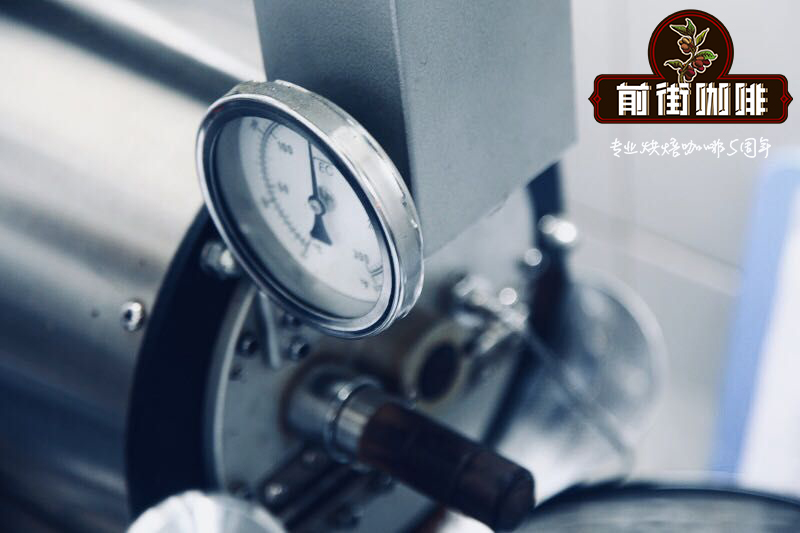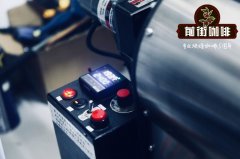Which is better, deep-roasted coffee beans or light-roasted coffee beans | what is the purpose of roasting coffee?

Professional coffee knowledge exchange more coffee bean information please follow the coffee workshop (Wechat official account cafe_style)
"roasting can make or destroy a pot of coffee." Sam Sabori, domestic quality control and baking manager of intellectual Coffee, said, "if it's too shallow, you can feel the tonality of asparagus; if it's too deep, the familiar charcoal taste will show."
Is it better to roast coffee beans deep or light? This issue has been debated for more than half a century. After all, it's hard to tune. I love both, .
I think the debate between deep roasting and light roasting will last forever, because the choice of roasting degree of coffee marks the roaster's understanding of the flavor of coffee. Personally, I think that deep roasting and light roasting do not need and should not be unified across the board. Roasters have a variety of understandings of coffee, even if they belong to the same shallow roasters, their roasting degree and curve are also different.
Many people often treat deep-baked beans as useless, believing that well-baked beans are carbonized to mask the smell of rotten beans, such as tires, sundries, rot and fishy soil. However, it is true that some practitioners will do this, refusing to spend money on good beans and using deep baking to remove the bad smell of rotten beans. However, we can not deny all practitioners, especially a small number of small bakeries who are highly skilled and spend a lot of money on hard beans to delve into the field of heavy baking.
The sweet aroma of deep-roasted coffee is obviously different from that of light-roasted coffee. Deep-roasted beans are low, thick and sweet, with a sweet smell coming from the nostrils, which are mainly felt by the root of the tongue or throat; their usually strong flavor, such as smoke, chocolate, wood will be the flavor of this kind of beans. The light roasted coffee beans are light and bright, with rising sweetness and low sweetness, sweet and sour aroma mainly on the tip of the tongue, both sides of the tongue and the nasal cavity.
Different heat, temperature, baking time and firepower curves of deep-roasted and light-roasted coffee lead to complex chemical changes such as carbohydrate degradation and polymerization.
Coffee beans themselves are not bitter, and the way they are roasted determines whether the coffee is bitter or not. Chlorogenic acid lactone and phenyllindane are the two most bitter compounds in coffee, both of which are the degradation products of chlorogenic acid in coffee raw bean during baking, and the heat generated by them is different.
Chlorogenic acid lactone is formed in the process of shallow to moderate baking before the second explosion, and continues to bake. After the second explosion, chlorogenic acid lactone will be degraded into more bitter phenyl lindane, which is the bitter substance of deep-roasted espresso.
Delicious deep-roasted coffee beans are really rare and usually have a smoky smell. Only by correctly mastering the firepower and time can the production of bitter factor phenyl lindane be greatly reduced, so that the oil-producing beans can moisten the throat with glycol in the fresh state and have no bitter taste.
However, as a roaster, the choice of coffee roasting degree should not only start from the roaster's personal interests and hobbies, but should focus on the needs of the audience, so there is a reason for shallow baking and a reason for deep roasting. There is no difference between the two. If your guests pursue the taste and the local characteristics of the coffee origin, then light baking can make your customers more clearly aware of what they need.
On the contrary, if your guests prefer round, mellow and sweet coffee, then medium or even deep roasting is more appropriate. But Uncle Dou wants to say a word for the roasters who roast coffee deeply. Many roasters with light roasting style think that when coffee is roasted deeply, there is no other flavor except bitterness in the coffee, and the flavor of coffee is lost in deep roasting. This statement is not objective. A roaster who is good at deep roasting coffee, not only is there no burning smell in his coffee, but the guests can also feel the flavor of the coffee. In other words, the coffee will only be roasted to the black out of oil, the smell of smoke is extremely strong, he is not a baker, but charcoal burning.
Coffee roasting has the following purposes:
1. Take the excess water out of the coffee beans.
two。 After roasting, the wood structure of the coffee bean expands and has a vent.
3. Start a continuous process of converting sugar into carbon dioxide gas, which does not stop immediately after baking and continues until the coffee beans are stale.
4. Some of the sugars in coffee beans are converted into caramel and some of the ingredients are converted into oils.
END
Important Notice :
前街咖啡 FrontStreet Coffee has moved to new addredd:
FrontStreet Coffee Address: 315,Donghua East Road,GuangZhou
Tel:020 38364473
- Prev

How to draw on coffee _ coffee sketch pattern tutorial _ how to make coffee pattern
Professional coffee knowledge exchange more coffee bean information please follow the coffee workshop (Wechat official account cafe_style) tools: coffee, milk foam, chocolate sauce, carved needle for pure novice 0 basic friends, coffee flower is difficult to use? Then the carving tutorial brought to you today may be suitable for you! For friends who drink purely at home, the introduction to carving is easier than that of drawing flowers.
- Next

The flavor of coffee comes from the roasting of coffee | how to distinguish between common problems in roasting: raw and charred
Professional coffee knowledge exchange more coffee bean information please pay attention to the coffee workshop (Wechat official account cafe_style) coffee beans basic knowledge is what determines the quality of a cup of coffee? Good brewing skills and utensils are important, but high-quality coffee beans are the most important element. So what kind of coffee beans are high-quality coffee beans? That is, you have to do it when you brew.
Related
- Beginners will see the "Coffee pull flower" guide!
- What is the difference between ice blog purified milk and ordinary milk coffee?
- Why is the Philippines the largest producer of crops in Liberia?
- For coffee extraction, should the fine powder be retained?
- How does extracted espresso fill pressed powder? How much strength does it take to press the powder?
- How to make jasmine cold extract coffee? Is the jasmine + latte good?
- Will this little toy really make the coffee taste better? How does Lily Drip affect coffee extraction?
- Will the action of slapping the filter cup also affect coffee extraction?
- What's the difference between powder-to-water ratio and powder-to-liquid ratio?
- What is the Ethiopian local species? What does it have to do with Heirloom native species?

